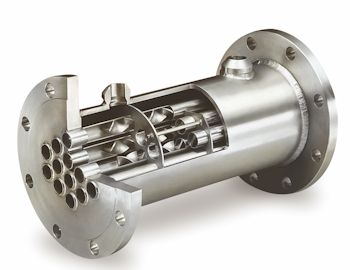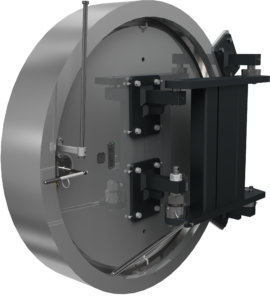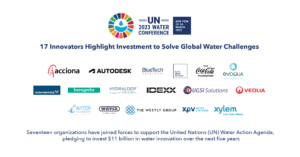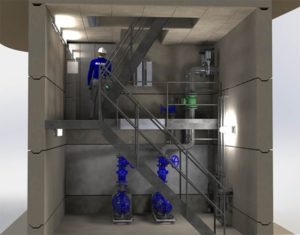Kenics Heat Exchangers Provide Effective Performance in Underwater Pelletizing Processes
Smooth running production processes help manufacturers reach targeted goals. To achieve this, all equipment and systems must work in perfect unison and perform to optimal efficiency.

Kenics™ Heat Exchanger (Image: Chemineer
Gala Industries manufactures underwater pelletizing systems for the plastics, hot melt adhesive and expandable resins industries. The manufacturer has used Kenics heat exchangers in their process for many years with no performance issues.
The Kenics branded heat exchanger, manufactured by NOV, is a critical component in the Gala Industries’ process. This heat exchanger is used in the melt cooling area. At the heart of the heat exchanger is Kenics static mixer technology which exclusively offers the highest available heat transfer coefficients for fast, uniform heat transfer.
According to Duane Boothe, HMA (Hot Melt Adhesive) Process Engineering Manager for Gala Industries, “Over the years, we have had great success with the Kenics melt coolers. As a result, this allows me to go out on a start-up knowing that the Kenics melt cooler is one thing I am not going to have an issue with. I have not had any problems with the Kenics equipment. Engineers of the Kenics products supply us with all necessary information and after sale service support to be able to quickly and easily size a piece of equipment for our customers. They are always helpful and readily available to answer any questions.”
The Kenics heat exchanger consists of a continuous string of static mixer elements within each heat exchanger tube. Fluid flow is directed radially toward the pipe walls and back to the element, regardless of velocity. Additionally, momentum reversal and flow division also contributes to the mixing efficiency. All processed material is continuously and completely intermixed to eliminate radial gradients in temperature and material composition. As a result, Kenics heat exchangers provide predictable, controlled mixing and the most efficient form of thermal transfer available today.
Source: NOV, Inc.







